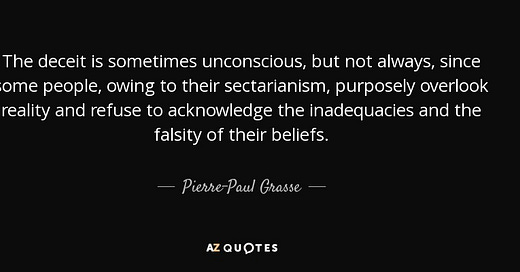1. Make the metrics.
2. Adjust the metrics.
3. Make the metrics look good.
Those who have served on staffs in large bureaucracies know these three steps. To get there, on any subject, you first have to get good data sets – otherwise garbage in, garbage out.
Looking desperately to avoid investing time and resources to investigate their epic failure as a primary player in our national humiliation in Afghanistan, the State Department seems to want to update their data.
The State Department, as part of an agency-wide modernization effort, is focused on using its vast inventory to further its diplomatic mission.
The State Department’s Enterprise Data Strategy, released in September, outlines the central role data plays in emerging technology, and how it’s needed to remain competitive against global threats.
The strategy calls for greater access to data across the department, increased data fluency across the workforce, and better governance to ensure data security.
Secretary of State Antony Blinken highlighted the data strategy last month while announcing the launch of a new bureau for cyberspace and digital policy and a new special envoy for critical and emerging technology.
Blinken said the data strategy and the agency-wide modernization plan will help the agency go further in using “data to solve foreign policy challenges.”
Seems, fine and good – right?
Priorities. What is really driving this?
Well, it takes a while of reading through the article … and if your spidey-senses were not tingling already … well … you haven’t been reading DivThu enough.
Just look where they begin?
The rollout of the strategy, he said, began with a management theme of diversity, equity, inclusion and accessibility, as well as a mission theme of strategic competition, “which highlights the importance of using data as an instrument of diplomacy to engage competitor countries.”
…and there it is. You know where this leads, right?
Graviss said the Enterprise Data Council is working with Chief Diversity and Inclusion Officer Amb. Gina Abercrombie-Winstanley to make workforce demographic data more widely available, while upholding the privacy and security of individual employees.
“Specifically, we are building out data visualization tools that give decision-makers a snapshot of their workforce. Based on this data, we are also asking them to think about topics that merit further analysis. And the end goal here is to make sure the Department is really a diverse, equitable, inclusive, and accessible place where people want to come work—and where people want to stay,” Graviss said.
One must have PPT slides with numbers and charts to tell the story. That way, you can move on to … you know what’s coming … you know you do.
Graviss said making workforce diversity data available will help managers and supervisors better understand DEIA roadblocks, especially when it comes to deciding who to promote to the Senior Executive and Senior Foreign Services.
“For those who manage actions in their bureaus and offices — like hiring, retention, training, awards — this data will help them identify and overcome any potential biases in those processes,” Graviss said.
There you go. They won’t use the word so I will; quota.
They are refining a system so they can put in a system where jobs, promotions and rewards are distributed based in a sectarian racial spoils program.
In the zero-sum games that are job offers, promotions, and promotions – for some to gain others must lose. To do this on a sectarian basis as a variable?
That is discrimination – red in tooth and
claw. History shows what this does to organizations and nations. It creates strife, conflict, and division. Every time. Never fails.
It is being done by your government, in your name, with your money. If your representative in Congress doesn’t do anything about it – then they support it.
If they support it, and you vote for them, then congrats – you support it.
If you have any questions, I am sure a struggle session can be scheduled.
The last thing of importance with anyone is their race, sex, creed, color, national origin or sexual orientation. It appears that is a radical position now days.
It isn’t. It shouldn’t.
If it is, then be a radical.




